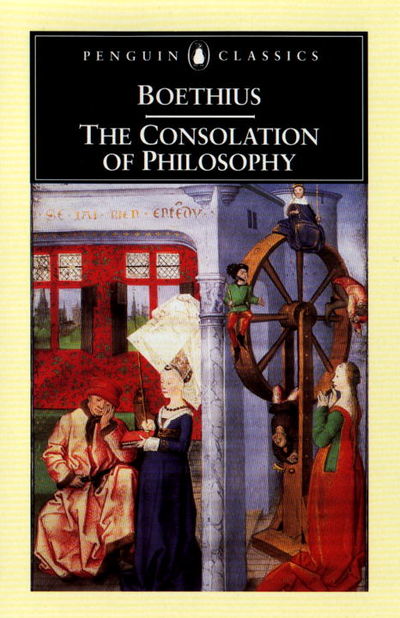
The Consolation of Philosophy (Penguin Classics) Paperback - 2000
by Boethius, Ancius
- Used
Description
Standard delivery: 2 to 5 days
Details
- Title The Consolation of Philosophy (Penguin Classics)
- Author Boethius, Ancius
- Binding Paperback
- Edition [ Edition: Repri
- Condition UsedAcceptable
- Pages 192
- Volumes 1
- Language ENG
- Publisher Penguin Group, London
- Date 2000-05-01
- Features Bibliography, Glossary, Table of Contents
- Bookseller's Inventory # 570W2K000X8J_ns
- ISBN 9780140447804 / 0140447806
- Weight 0.3 lbs (0.14 kg)
- Dimensions 7.72 x 5.03 x 0.5 in (19.61 x 12.78 x 1.27 cm)
- Ages 18 to UP years
- Grade levels 13 - UP
-
Themes
- Chronological Period: Medieval (500-1453) Studies
- Library of Congress subjects Happiness, Philosophy and religion
- Library of Congress Catalog Number 00267952
- Dewey Decimal Code 100
About EB-Books Illinois, United States
Books and Media E-Commerce company. We value every customer and aim to provide the best service for each of them.
Summary
‘Why else does slippery Fortune change
So much, and punishment more fit
For crime oppress the innocent?’
Written in prison before his brutal execution in AD 524, Boethius’s The Consolation of Philosophy is a conversation between the ailing prisoner and his ‘nurse’ Philosophy, whose instruction restores him to health and brings him to enlightenment. Boethius was an eminent public figure who had risen to great political heights in the court of King Theodoric when he was implicated in conspiracy and condemned to death. Although a Christian, it was to the pagan Greek philosophers that he turned for inspiration following his abrupt fall from grace. With great clarity of thought and philosophical brilliance, Boethius adopted the classical model of the dialogue to debate the vagaries of Fortune, and to explore the nature of happiness, good and evil, fate and free will.
Victor Watts’s English translation makes The Consolation of Philosophy accessible to the modern reader while losing nothing of its poetic artistry and breadth of vision. This edition includes an introduction discussing Boethius’s life and writings, a bibliography, glossary and notes.
From the rear cover
An eminent public figure under the Gothic emperor Theodoric, Boethius (c. A D 475-525) was also an exceptional Greek scholar and it was to the Greek philosophers that he turned when he fell from favour and was imprisoned in Pavia. Written in the period leading up to his brutal execution, it is a dialogue of alternating prose and verse between the ailing prisoner and his 'nurse' Philosophy, whose instruction on the nature of fortune and happiness, good and evil, fate and free will, restore his health and bring him to enlightenment.
The clarity of Boethius's thought and his breadth of vision made The Consolation of Philosophy hugely popular throughout medieval Europe and his ideas suffused the thought of Chaucer and Dante. This translation makes it accessible to the modern reader while losing nothing of Boethius's poetic artistry and philosophical brilliance.
